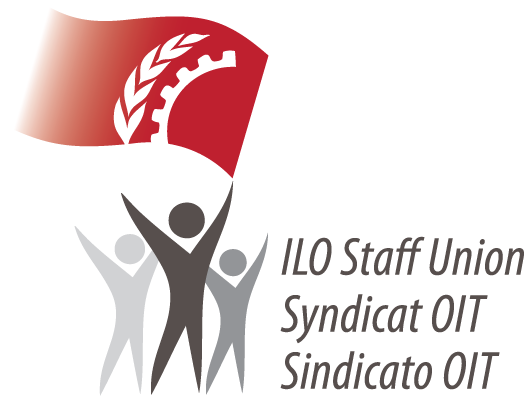Dr Vali Jamal, 1941-2021 – A Tribute
Category : Message68
We, in the African child rights and development community, are sad to learn of the death of Dr Vali Jamal, a top-notch development economist who cared about the poor and victims of injustice and poverty and one of the founders of the African Child Policy Forum (ACPF), the leading Pan-African child rights policy and advocacy centre based in Addis Ababa.
Vali had a distinguished academic background and a successful professional career. He was educated at Trinity College, Cambridge, and studied at Stanford University where he earned a PhD in Economics. He spent most of his professional life in the ILO, advising and writing on employment and poverty issues. He joined the ILO as an expert on employment in what was then known as the Jobs and Skills Programme for Africa (JASPA), which was based in Addis Ababa and where I first met him. He later served in various capacities mostly in the World Employment Programme as Senior Economist, with a short stint at the East Asian Multidisciplinary Advisory Team (EASMAT), based in Bangkok, where I was Director. A down-to-earth economist, Vali was always interested in what mattered for poor people and the impact of macro- economic policy on their lives. He was passionate about social justice. His major preoccupation in economics remained equity, the sharing of the benefits of growth and its impact on income inequality.
Vali was an excellent writer and a meticulous stylist. He was almost never pleased with what he wrote, as a result he seldom let go and I have had, on several occasions, to snatch his drafts from his hands or his desk when he was away. Even so he was a prolific writer. His work covered poverty, inequality, and labour markets in such diverse economies as Somalia, Kenya, Sierra Leone, Tanzania, Tunisia, Uganda, and Vietnam, to mention only a few. A list of the publications which he authored or co-authored would include: “Farewell to Farms: De-Agrarianisation and Employment in Africa”; “Structural Adjustment and Labour Markets in Africa”; “Africa Misunderstood, Or Whatever Happened to the Rural-Urban Gap?”; “Tunisia: Rural Labour and Structural Transformation”; “Nomads, Farmers, and Townspeople: Incomes and Inequality in Somalia”; and “Vietnam: Labour and Social Issues in a Transition Economy”.
After he left the ILO, after some 25 years of service, we worked together in the conceptualisation and design of a Pan-African child rights policy and advocacy organisation which later came to be known as the African Child Policy Forum (ACPF). He, along with Stefan van der Swaluw from Plan Nederland, subsequently joined me in Addis Ababa to build the foundation and architecture of this organisation and to make it operational. Vali, Stefan and I worked as a very close and tight team, and what became of ACPF was as much due to his effort as to the rest of us. He worked at ACPF for two years, 2003 to 2004 when he decided to move back to his beloved Uganda.
Vali was a passionate Pan-Africanist. He called himself and often signed off as “Kenya citizen and Uganda resident”. He lived his last years in Uganda where he was engaged in a monumental study on Ugandan Asians with a special – though not exclusive – focus on their expulsion in 1972. This book Ugandan Asians: Then and Now, Here and There, We Contributed, We Contribute documents the expulsion of Asians from Uganda in their own words and using archival material. He worked on that book for over 12 years until his death. This book was extremely important for him as one can see from the way he described it. According to Vali – who was good not only with words but also loved numbers – this magnum opus was “2,440 pages, had 10,000 images, 2m words-equivalent, total weight 11.9 kg the equivalent of 75 books!” And never one to miss the opportunity to make a good joke, he calculated the cost to be “US$220,000 – book only; equipment (2005 desktop, no printer, no generator); 25 digital prints periodically; 1 designer ($15 per day), 2 workers. No rent as done from home.”
The significance of this work can be seen from the quotes in the write-up on the cover of the book. President Museveni called it, “A national asset in Uganda’s commercial diplomacy”. “Encyclopaedic, unequalled, an intellectual asset”, according to Makerere University Chancellor Professor Mondo Kagonyera. “A contribution to Uganda’s intellectual GDP”, according to the Governor of the Bank of Uganda Professor Emmanuel Tumusiime-Mutebile.
Vali died just as the book was being reviewed for publication. I hope we will see it published. It is an enormous contribution to the political, economic and cultural history of East Africa, to the study of the role of migrants in social history, and to the history of Empire at large.
Vali died on 11 July and his funeral took place on 13 July 2021 in his much beloved Kampala. I personally will miss his friendship; his love for ideas and good writing; his anger at injustice; his love of music especially his rendering of the Beatles or Aretha Franklin’s “Killing me Softly”; his sometimes almost insufferable mercurial temperament; and his love for Africa and Africans. He was a good man to the point of being almost childlike and naïve. Oh, such goodness!
May his soul rest in peace.
Assefa Bequele
Founder and Distinguished Fellow, African Child Policy Forum (ACPF)
 SECTION DES ANCIENS FONCTIONNAIRES DE L’OIT
SECTION DES ANCIENS FONCTIONNAIRES DE L’OIT